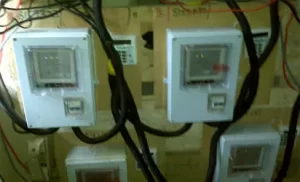Table of Contents
As of the first quarter of 2024, data from the Nigerian Electricity Regulatory Commission (NERC) reveals that approximately 7.4 million electricity consumers in the Nigerian Electricity Market lack prepaid meters.


Despite a five percent increase in meter installations compared to the same period last year, the gap remains significant. Out of 13.37 million registered electricity consumers, only 5.989 million have meters, representing 44.78 percent metering coverage.

Join our Telegram Channel for Updates
In the first three months of 2024, 179,792 meters were installed, with March seeing 56,994 installations, followed by February with 79,837, and January with 42,961. Among the electricity distribution companies (DisCos), Ikeja Electric leads with 73 percent metering coverage, followed by Abuja DisCo (61 percent) and Eko DisCo (59 percent).
The Minister of Power, Adebayo Adelabu, acknowledged the substantial metering gap as a major challenge in the industry. He criticized the use of estimated billing by DisCos, emphasizing its unfairness to customers. To address this, President Bola Tinubu approved the allocation of N12 billion to meter army formations nationwide.
Efforts to bridge the metering gap include the National Mass Metering Programme, funded by a $155 million World Bank loan. Phase-1 failed to commence due to a lack of expected funds from the Central Bank of Nigeria (CBN), phase-2, backed by a $500 million loan, aimed to supply 1.25 million smart meters and expand distribution networks.
Disagreements between the government and local meter manufacturers and assemblers have stalled the project in 2024, delaying progress.
Adetayo Adegbemle, Convener and Executive Director of PowerUp Nigeria highlighted the critical importance of metering in the market, emphasizing its role as the standard interface between various stakeholders in the sector.









